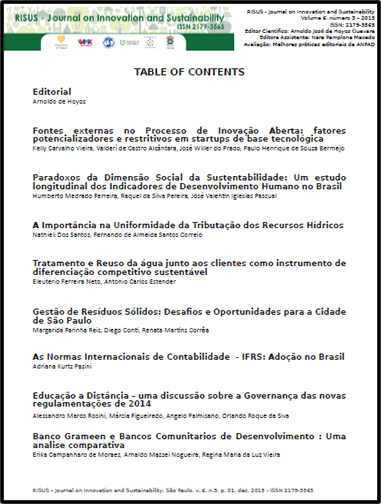Grameen Bank and Community Development Banks: A Comparative Analysis
DOI:
https://doi.org/10.24212/2179-3565.2015v6i3p127-139Keywords:
Social and Solidarity Economy, Social Business, Microcredit Grameen Bank, Community Development Banks.Abstract
The purpose of this paper is to show the work of Community Development Banks (BCDs) as compared to the original Grameen Bank, indicating a fertile field of microcredit experiences that opens up the possibility of alternatives to reducing social inequality and increased opportunities for income and work to segments at the base of the pyramid. So the topic is included in the areas of Social and Solidarity Economy (ESS) and Social Management. Based on a bibliographical and documentary research on the Grameen Bank and the Banco Palmas, it was possible to describe pioneering bank performance characteristics in operation with microcredit, Grameen Bank, and also BCDs working characteristics in Brazil. It was found that there are differences in the operating mode between the first bank and the Brazilian BCDs, although the essence and purpose is the same: encouraging the local community to improve the quality of life of its residents. This research shows that in the ways of organization and business, respect for culture and local needs should prevail as opposed to imposing based performance rules based on outside interests to communities.Downloads
Published
2015-12-15
Issue
Section
Papers
License
This Journal is licensed under a Creative Commons Attribution-Non Commercial-No Derivers 4.0 International license.
1.The author (s) authorize the publication of the article in the journal;
2.The author (s) warrant that the contribution is original and unpublished and is not in the process of being evaluated in other journal (s);
3. The journal is not responsible for the opinions, ideas and concepts emitted in the texts, as they are the sole responsibility of its author (s);
4. The editors are entitled to make textual adjustments and to adapt the articles to the standards of publication.


